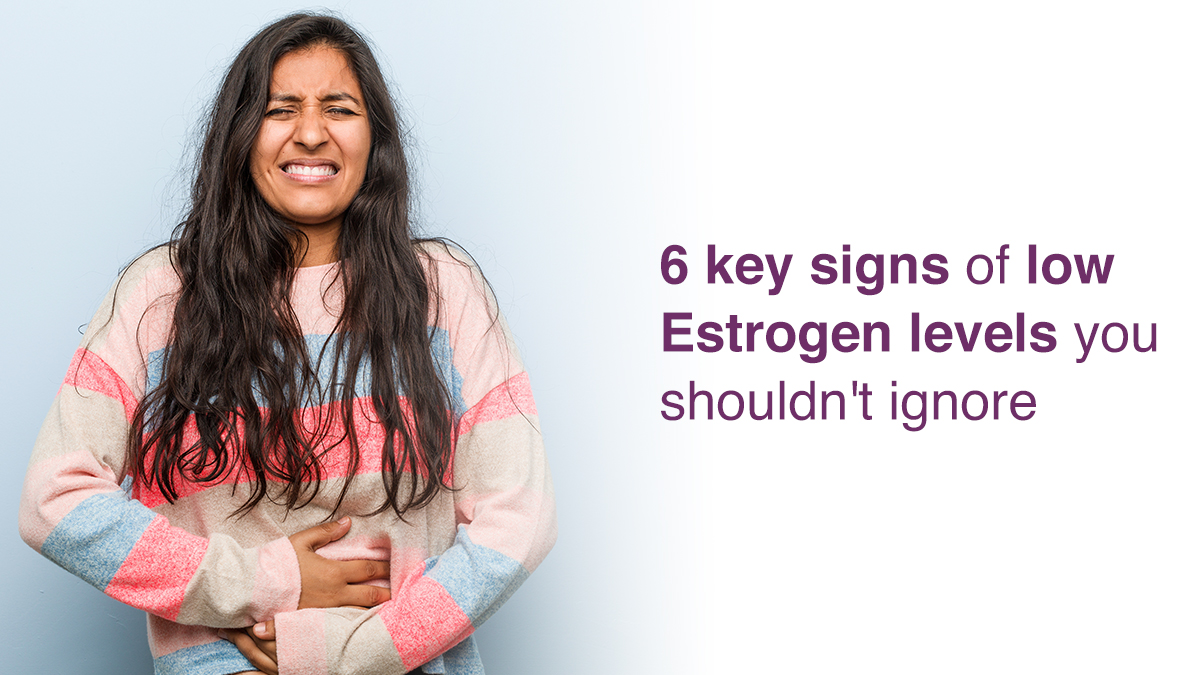Hormones refer to the special chemical substances which control important physiological processes, like mood and metabolism. Estrogen is one of the most crucial hormones for both males and females, necessary for heart, bone, and reproductive health. Symptoms that may occur from a lack of estrogen can range from hot flashes, mood swings, fatigue, and abnormal periods to weakness in the bones. If the signs are ignored, it may lead to health challenges such as heart disease or later development of osteoporosis. To appropriately manage low estrogen and avoid further complications, it is important that these changes be noticed, and medical assistance sought.
What is Estrogen and Why is it Important?
Although it affects both men and women, estrogen is a class of hormones that are mainly in charge of the development and control of the female reproductive system. Estrogen has a crucial role in women’s menstrual cycle regulation, pregnancy support, and the maintenance of good bone density. Additionally, it affects cognitive function, cholesterol levels, and skin elasticity. By keeping bones strong and controlling cholesterol, estrogen drives cardiovascular health and helps avert osteoporosis. It contributes to sperm production in men and helps keep testosterone levels in check. All things considered, estrogen plays a vital role in both reproductive and general health.
6 Key Signs of Low Estrogen Levels You Shouldn’t Ignore
Signs of a low estrogen level are not always obvious. When they appear, they can be mistaken for symptoms of other illnesses. Therefore, it is difficult to diagnose it based solely on symptoms. Here are 6 vital symptoms of low estrogen levels that should not be ignored:
A. Irregular or Missed Periods
Why It Happens:
Inconsistent or missing periods might be due to low estrogen levels interfering with menstrual cycle regularity.
What to Watch For:
Periods that are heavier, lighter, or less frequent than normal.
Why It’s Important:
Hormonal abnormalities that may affect fertility and general reproductive health can be indicated by irregular or absent periods. One of the main causes of missed or irregular periods is low estrogen level.
B. Hot Flashes and Night Sweats
Why It Happens:
Sweating and unexpected feelings of warmth are caused by low estrogen levels, which also interfere with the body’s ability to regulate its temperature. This is one of the causes of hot flashes.
What to Watch For:
Frequent bouts of extreme heat, especially at night, with perspiration.
Why It’s Important:
These symptoms, which can interfere with sleep and day-to-day activities, frequently indicate the start of menopause or hormonal changes.
C. Mood Swings and Emotional Changes
Why It Happens:
Estrogen influences mood and emotions by altering neurotransmitters in the brain. Depression, anxiety, or irritability might result from a decrease in Estrogen.
What to Watch For:
Sudden mood changes, melancholy, worry, or increased irritation.
Why It’s Important:
Unmanaged mood swings can have a negative impact on one’s quality of life, relationships, and mental health; they must be addressed to prevent long-term problems.
D. Vaginal Dryness and Discomfort
Why It Happens:
Estrogen keeps the tissues of the vagina supple and hydrated. Dryness, thinning, and irritation are all consequences of low estrogen. Low estrogen level is one of the main causes of vaginal dryness.
What to Watch For:
Dryness, itching, or pain in the vaginal region during intercourse.
Why It’s Important:
Sexual health and general well-being can be impacted by vaginal discomfort, which, if addressed, can result in infections and other problems.
E. Fatigue and Trouble Sleeping
Why It Happens: Since estrogen affects the sleep-wake cycle, low levels can cause sleep disturbances that result in exhaustion and insomnia.
What to Watch For: Weariness during the day, trouble sleeping or staying asleep, and fatigue even after getting enough sleep.
Why It’s Important: Intervention is necessary for improved sleep management since chronic exhaustion and inadequate sleep can affect daily functioning, emotional stability, and physical health.
F. Decreased Bone Density
Why It Happens: By regulating bone synthesis and breakdown, estrogen contributes to the maintenance of bone strength. Bone loss is accelerated by low estrogen.
What to Watch For: A higher chance of bone pain, height loss, or fractures.
Why It’s Important: If left untreated, low bone density can result in osteoporosis, which raises the risk of fractures and permanent disability. Monitoring bone health on a regular basis is essential.
Other Symptoms of Low Estrogen to Consider
Apart from the typical symptoms, there are other indicators of low estrogen that should not be disregarded. Less estrogen’s effect on hair growth might lead to hair thinning or loss. Changes in the skin, such as thinning, dryness, or loss of suppleness, may also occur. Since estrogen promotes urinary tract health, it may lead to recurrent UTIs or bladder problems, including incontinence. Another indication of low estrogen levels is joint discomfort or stiffness. Often called ‘brain fog’, decreased libido and trouble focusing can also be signs of low estrogen. For prompt action, it is imperative to identify these symptoms.
When to Seek Medical Advice?
If you have ongoing low estrogen symptoms, such as irregular periods, intense hot flashes, mood swings, vaginal dryness, or recurrent UTIs, consult a doctor. Additionally, if these symptoms interfere with day-to-day functioning, get worse over time, or cause you to worry about long-term health risks, including osteoporosis or heart disease, see a doctor.
Natural Ways to Support Estrogen Levels
How to increase estrogen naturally? A hormone-balanced diet full of phytoestrogens, such as those found in flaxseeds, soy, and chickpeas, is essential for naturally boosting estrogen levels. Strength training and yoga are examples of regular exercise that supports hormonal balance without being too strenuous. Chronic stress impairs hormone production and general well-being; therefore, managing stress with relaxation methods like meditation can also be beneficial.
Conclusion
If left untreated, low estrogen can have a major negative influence on general health and quality of life. Early symptom detection, appropriate treatment and lifestyle modifications can help regain equilibrium and avoid long-term issues. You can discuss the issue with our fertility specialists at your nearest Oasis Fertility where you can get information on estrogen replacement therapy and how to boost estrogen levels. Additionally, you can also get immediate assistance by calling 1800-3001-1000 or using the live chat facility to avail more details.

